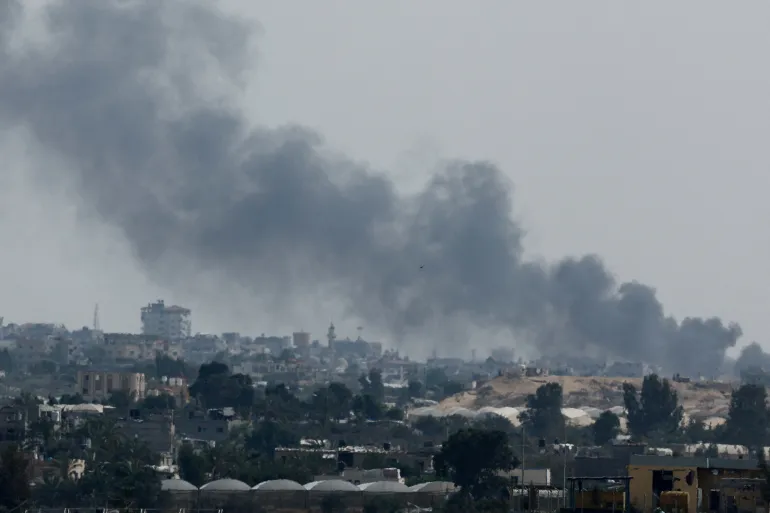Rafah Genocide : Israel Shrugs Off UNSC Bid to ‘Stop the Killing’ to Continue Rafah Genocide
Table of Contents
Introduction
The ongoing conflict between Israel and Palestine has reached a boiling point, with recent escalation in Rafah leaving many civilians injured or displaced. Despite international pressure, Israel has chosen to disregard the United Nations Security Council’s (UNSC) call to halt its military operations in Rafah, highlighting the complexity of the conflict. This article aims to provide an in-depth analysis of the situation and its humanitarian impact, encouraging readers to take action towards a peaceful resolution.
Key Points
Background: The Ongoing Conflict
The Israel-Palestine conflict is a complex and deeply rooted issue, with both sides claiming sovereignty over the same land. The recent escalation in Rafah has seen Israeli military forces launch airstrikes against Palestinian targets, resulting in significant humanitarian consequences (BBC News, Al Jazeera).
UNSC’s Response
In response to the escalating violence, the United Nations Security Council issued a statement urging both parties to cease hostilities and allow humanitarian aid to reach those in need. The UNSC called for an immediate end to the violence and for all sides to work towards a peaceful resolution (United Nations Security Council Press Release).
Israel’s Decision
Despite the UNSC’s call, Israel has chosen to continue its military operations in Rafah, citing security concerns. Israeli officials have stated that their actions are necessary to protect against Palestinian terrorist attacks, while Palestinians argue that Israel’s actions are collective punishment and a violation of international law (The Guardian, CNN).
Analysis
International Reactions
The international community has condemned Israel’s decision, with many countries calling for a ceasefire and humanitarian aid. The European Union has called on Israel to halt its military operations in Gaza, while Canada has condemned Israeli airstrikes in the region (EurActiv, CBC News).
Humanitarian Impact
The conflict has had devastating humanitarian consequences, with many civilians injured or displaced. According to the United Nations Office for the Coordination of Humanitarian Affairs (OCHA), thousands of Palestinians have been forced from their homes, and emergency medical services are overwhelmed.
Call to Action
Encourage readers to contact their governments and international organizations to demand a peaceful resolution to the conflict.
Suggest that readers consider donating to reputable humanitarian organizations working in the region.
Conclusion
The Israel-Palestine conflict highlights the complexities of modern warfare, emphasizing the need for diplomacy and international cooperation to achieve a lasting peace. As the situation continues to unfold, it is essential that we remain vigilant and work towards a peaceful resolution.
Resources
- United Nations Office for the Coordination of Humanitarian Affairs (OCHA)
- BBC News
- Al Jazeera
- CNN
- The Guardian
- EurActiv
- CBC News
Tags: Israel-Palestine conflict, UNSC, Rafah, humanitarian crisis, international relations
Hashtags: #IsraelPalestineConflict #RafahUnderSiege #HumanitarianCrisis #InternationalRelations
Turkey Scholarship 2020 | Türkiye Burslari Scholarship – Applications Open
https://engineer.org.pk/2020/01/05/turkey-scholarship-2020-open/



